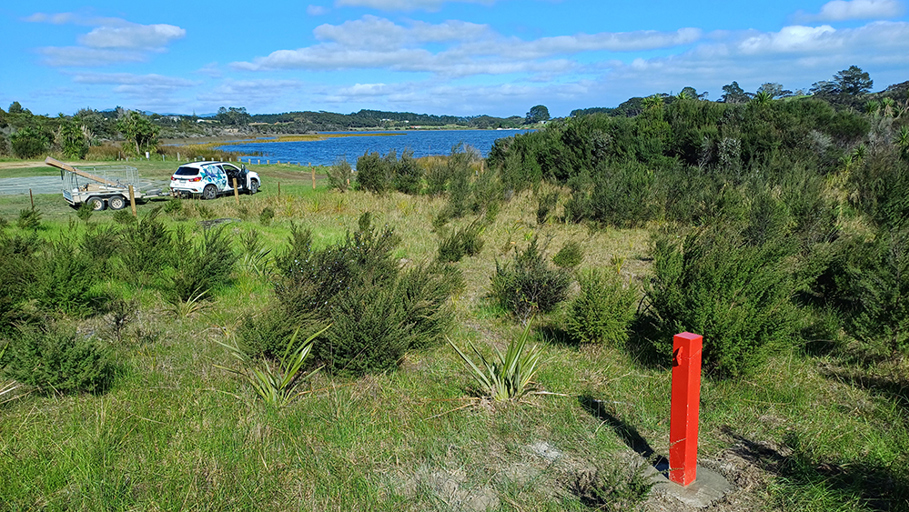Lake Ngātu Nutrient Load Modelling Project
Overview
The dune lakes of Te Taitokerau are rare and ecologically significant freshwater ecosystems.
These unique habitats support threatened species such as kākāhi (freshwater mussels) and Trithuria inconspicua, a lake plant found only in Te Taitokerau. Protecting the lakes is vital for preserving native biodiversity and ensuring community wellbeing.
Northland Regional Council (NRC) monitors 12 dune lakes through its State of the Environment programme. This helps track lake health and supports timely action when needed.
Dune lakes and nutrients
Dune lakes are naturally low in nutrients, but human activities like fertiliser use, grazing adjacent to lakes and wastewater discharge have increased nutrient levels. These nutrients can enter the lake through surface runoff and groundwater.
Dune lakes are closed systems, meaning that anything that enters the lake stays there for long periods. Nutrients tend to remain and recycle within the lake, potentially leading to algal blooms, poor water quality and impacting biodiversity.
Lake Ngātu – a special place
Lake Ngātu was chosen as a “focus lake” for the project as an outstanding example of a shallow dune lake.
The lake holds significant cultural and spiritual importance for Ngāi Takoto and their support for the project is invaluable and appreciated.
Lake Ngātu nutrient load modelling project
Dune lake monitoring by NRC expanded in 2025 to include a new project; the Lake Ngātu In-lake Nutrient Load Modelling Project.
The project began in July 2025 and will run for two years, led by NRC with input from NIWA and support from Ngāi Takoto. The project will monitor groundwater quality and quantity, rainfall, lake sediment and submersed plants, to improve our understanding of different nutrient pathways to the lake.
The project undertakes groundwater monitoring using 11 boreholes, rainfall and evaporation tracking via a weather station, and sampling of lake sediment and submerged plants. Ongoing water quality monitoring will continue alongside these efforts.
Project Outcomes
The results will help identify the most effective ways to reduce nutrient inputs and improve lake health, while the knowledge gained can be applied to other dune lakes across Te Taitokerau, helping to protect and preserve these outstanding ecosystems for future generations.
Reports and data
Reports and data on the water quality and ecological status of Northland lakes, including reports from the Lake Ngātu project, are available from our lakes research and reports section
More information
- For more information on our water monitoring: www.nrc.govt.nz/monitoring
- To find out more about lakes in Te Taitokerau: www.nrc.govt.nz/hiddengems
- Learn more about the Dune Lakes Kaitiaki Partnership Project



